UAE, Syria Plan To Expand Economic Cooperation As Assad's Isolation Eases

The United Arab Emirates said on Sunday that the Gulf state and Syria had agreed on future plans to enhance economic cooperation and explore new sectors.

The United Arab Emirates said on Sunday that the Gulf state and Syria had agreed on future plans to enhance economic cooperation and explore new sectors.
The Economy Ministry wrote on Twitter that the value of non-oil trade between the two countries in the first half of 2021 was one billion dirhams ($272 million).
The UAE re-opened its mission to Damascus in late 2018 in a bid to counter the influence of non-Arab actors like Iran, which along with Russia backs Syrian President Bashar al-Assad, and Turkey, which backs rebel forces.
Jordan also has been taking steps to reestablish contacts and interaction with Syria. King Abdullah spoke to al-Assad earlier this month for the first time in a decade. The two countries have fully opened their borders.
Analysts believe pro-West Arab states may have a desire to counter Iran’s influence in Syria, which came about during the civil war as Tehran played a major military and economic role to save the Assad regime from collapse.
The United States still has not changed its policy of shunning the Syrian government but some say US Arab allies are encouraging the Biden Administration to change the current policy.
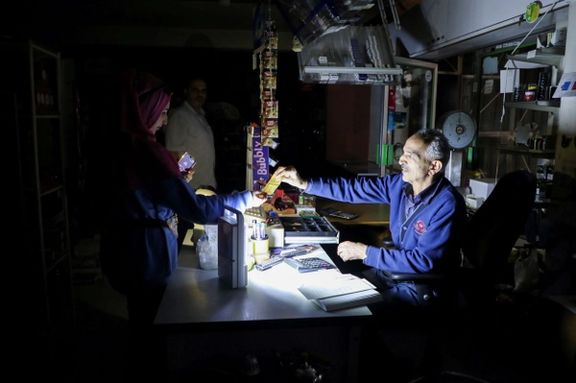
Lebanon's two main power plants were forced to shut down after running out of fuel plunging the country into darkness on Saturday, despite Iran sending fuel.
Iran began sending fuel to Hezbollah, its ally in Lebanon in September. The Shiite militia group said its arrangement with Iran would help the country amid a crippling energy crisis, but it is not clear why the shipments have not reached the power plants.
So far two vessels have docked at Syrian ports from where the fuel is being sent to Hezbollah by tanker trucks. Hundreds of these tankers are said to have delivered fuel.
Erratic power supplies have put hospitals and essential services in crisis mode.
The Lebanese increasingly depend on private operators that also struggle to secure supplies amid an unprecedented crash of the national currency.
The shortage of diesel and fuel, along with an antiquated infrastructure, has worsened power cuts that have been a fixture for years.
Blackouts that used to last for three to six hours could now leave entire areas with no more than two hours of state power a day.
On Saturday, the state electricity company said Zahrani power plant in the country's south was forced to shut down because of fuel shortage; the main plant in the north was shut down on Thursday.
Electricite Du Liban said the shutdown reduces the total power supply to below 270 megawatts, which means a major drop in the stability of the grid.
It said it would reach out to fuel facilities in the country's north and south to see if they can procure enough fuel to bring back power.
It added that a new shipment of fuel from Iraq is expected next week.
But the company, responsible for most of the government's debts, is dependent on credit from the country's central bank, which is struggling with dwindling reserves.
The government has gradually raised prices of fuel and diesel as the central bank cut back on subsidizing dollars for imports, adding to the hardships in Lebanon, where about three quarters of the population has plunged into poverty over the last year.
With prices soaring and unemployment at a record high, many families have given up private generators and few hours of state power a day is all they get.
On Saturday, distributors of gas canisters used for cooking and heating stopped operating, saying subsidy cuts amid black-market currency fluctuations meant they were selling at a loss.
The energy sector has been a huge drain on state coffers for decades.
The electricity company has annual losses of up to $1.5 billion and has cost the state more than $40 billion over the past decades.
Energy sector reforms have been a key demand by the World Bank and the International Monetary Fund.
Iran’s foreign minister Hossein Amir-Abdollahian who visited Lebanon October 7-8 promised more fuel deliveries while the government has no control over fuel already sent to Hezbollah.
Iraq has also made a swap deal with the government that has helped Lebanon's state electricity company stay operational for days.
The new Lebanese government is also negotiating supplies of electricity from Jordan and natural gas from Egypt, also through Syria.
But those deals are likely to take months.
With reporting by AP
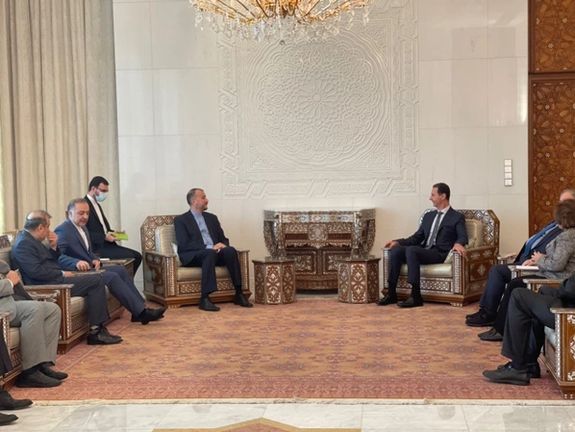
Hossein Amir-Abdollahian, foreign minister of the Islamic Republic of Iran visited Syria on Saturday and met with president Bashar al-Assad in Damascus.
The Islamic Republic News Agency, IRNA, reported that Amir-Abdollahian praised existing close relations and cooperation between Tehran and Damascus and said, “Conditions have shifted in Syria’s favor.”
Assad’s government has been isolated and sanctioned by Western and other countries since it began using military force against opponents after protests during the 2010 Arab Spring in the region.
Iran provided Assad with full military and substantial financial backing as the conflict turned into a civil war. Estimates say thousands of Iranian servicemen and Afghan and other proxy forces have been killed in Syria. Senior Iranian officials have said Iran has spent more that $30 to support Assad.
IRNA said that the Iranian foreign minister congratulated Assad for his government’s “military and international” successes and added that the diplomatic atmosphere as he witnessed during the United Nations General Assembly has shifted favor of Damascus.
Amir-Abdollahian also spoke about events in Afghanistan and said the US withdrawal shows the weakening of the Western axis.
Before arriving in Syria, Iran’s foreign minister visited Russia and Lebanon. Russia and Hezbollah in Lebanon are two other key allies of Assad.
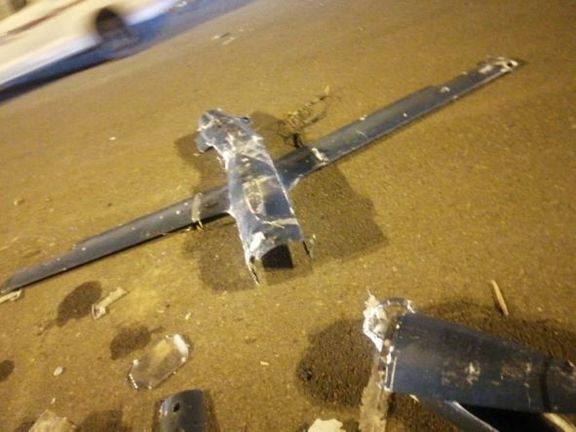
Ten people were injured in two explosives-laden drone attacks at King Abdullah airport in the southern Saudi city of Jizan late on Friday and early on Saturday.
There was no immediate claim of responsibility by Iran-backed Houthis, who regularly launches drone and missile attacks targeting the gulf kingdom.
The latest attack comes as Saudi Arabia and Iran are engaged in talks to address tensions in their relations that have especially prevalent since they broke diplomatic ties five years ago.
Iran’s foreign minister Hossein Amir-Abdollahian in a visit to Lebanon on Thursday and Friday emphasized that the talks are on the right track and highlighted their importance for regional security.
Six Saudis, three Bangladeshi nationals and one Sudanese were injured in the first attack, Saudi state media said, citing a coalition spokesman. Some of the airport's facade windows were shattered in the attack, the spokesman said.
A second explosives-laden drone was intercepted early on Saturday, the coalition said, without giving details on any injuries or damages.
The military coalition intervened in Yemen in 2015, backing forces of the ousted government of President Abdrabbuh Mansur Hadi and fighting the Iran-aligned Houthi group.
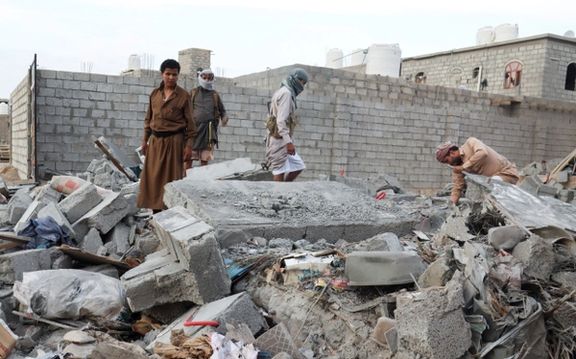
Recent statements from Iran and Saudi Arabia have provided hope that a pathway might be emerging to an end to the bitter seven-year civil war in Yemen.
The conflict has killed an estimated quarter of a million people and left millions more homeless.
On September 21, officials from Saudi Arabia and Iran – the Middle East’s two biggest powers and bitterest rivals – met at Baghdad airport for the fourth round of talks aimed at improving relations. Three other rounds of direct talks took place during the administration of moderate Iranian president Hassan Rouhani. There was a short hiatus in August while the new – and deeply conservative – president, Ebrahim Raisi, took office, but in recent weeks new momentum has been found.
Commenting at the beginning of October, Saudi minister of foreign affairs, Prince Faisal bin Farhan al-Saud, expressed the hope that the talks would “provide a basis to address unresolved issues between the two sides”. The following day, Iranian foreign ministry spokesman, Saeed Khatibzadeh, told reporters that all parties were “trying to start a sustainable relationship within a mutually beneficial framework”, adding that talks were “in their best state”.
The talks came just a month after the Baghdad International Conference for Cooperation and Participation brought representatives from Saudi Arabia, Iran, Turkey, Egypt and others together to discuss regional security concerns. Saudi Arabia and Iran are, of course, central to regional security, but have regularly found themselves on opposing sides of regional conflicts.
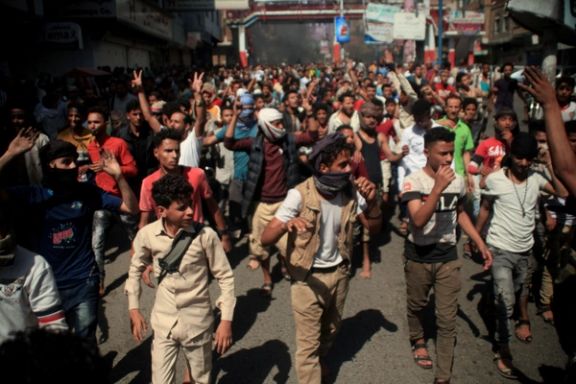
While tensions between the two states have been high, in recent years there has been an acceptance among Saudi officials that Riyadh’s confrontational policy towards Iran has failed. But a great deal of work needs to be done to address not only decades of animosity but also the practicalities of ending conflict in Yemen. The semi-regular prisoner swaps will only go so far towards achieving this.
While many date the rivalry between Saudi Arabia and Iran to the establishment of the Islamic Republic of Iran in 1979, tensions can be traced far earlier – reflecting a series of issues pertaining to geography and the treatment of minority groups. But the establishment of the Islamic Republic in Iran raised the pressure. The explicitly anti-monarchical vision of Iran’s supreme leader, Ruhollah Khomeini, didn’t help matters as Saudi Arabia’s ruling al-Saud family found themselves the subject of a great deal of criticism from Iran’s clerical leadership.
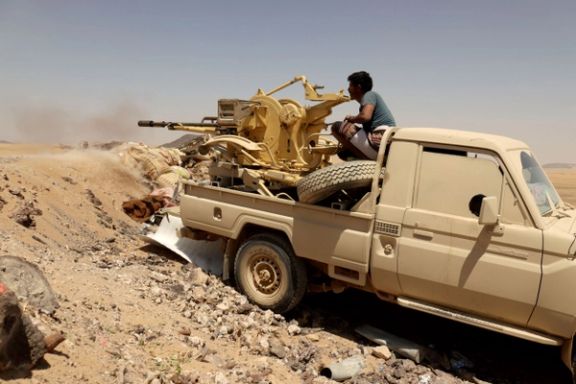
In the following decades, this rivalry has begun to play out in divided societies across the Middle East such as the “proxy arenas” of Bahrain, Iraq, Lebanon, and particularly Syria and Yemen, often with devastating results. But it has been the conflict in Yemen – a bitter struggle that until now has shown no sign of abating – which is the biggest concern. In Yemen the Saudi-backed Hadi military coalition has been at war with the Houthi rebel movement which receives funding from Iran but honed its military skills over two decades of conflict with the Yemeni government.
As Yemen watchers have observed, the war is actually comprised of a number of different conflicts. Central to this is a conflict between government forces and the Houthi movement, but adding to this complexity is the presence of a secessionist movement in the south of Yemen. There is also tribal competition in the east and competition between different branches of the military along the Red Sea coast. These groups receive varying levels of support from external powers, including Saudi Arabia, Iran and the UAE. These different fault lines in the conflict have mapped onto the geography of the state, facilitating its fragmentation.
A resolution of tensions between Saudi Arabia and Iran can have a dramatic impact across the region. Yet the interplay of regional and local politics means that fighting in Yemen can hinder any regional peace agreements. Meanwhile, tensions continue thanks to the provision of funding by regional powers to local groups in pursuit of increased influence.
As a consequence, a clear mechanism to build trust – and ultimately peace – is needed to bring about an end to fighting in Yemen. This mechanism is the subject of discussions between Saudi and Iranian officials – but reports suggest that proposals have been taken to senior Houthis in Yemen.
For Saudi Arabia, any peace with Iran is dependent on a cessation of attacks on its soil from Houthi missiles. This will require Iranian guarantees that Houthi attacks on the kingdom will end. It may also require the reopening of Sana’a airport, which currently remains under blockade. In return, Iranians expect Saudi Arabia to withdraw its opposition to the nuclear deal and a resumption of diplomatic relations.
But peacebuilding is never easy. Two days after the Saudi statement about the good progress of peace talks, the interception of ballistic missiles and “bomb-laden” drones launched by the Houthis towards Saudi Arabia highlighted just how precarious things are in Yemen. So there’s still a lot of work to be done, but – seemingly for the first time since this bitter conflict flared in 2014 – there is confidence on all sides that this bloody mess can be resolved.
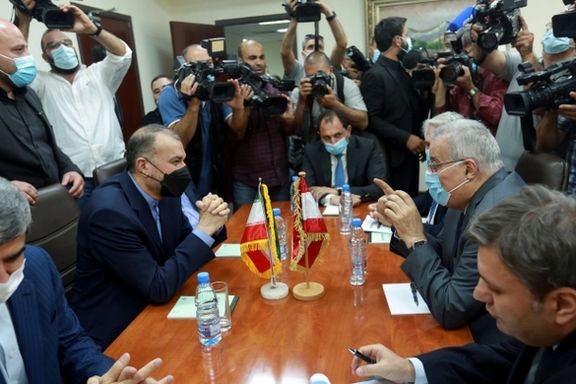
Iran wants to continue sending fuel to Lebanon and hopes for an agreement with Beirut, foreign minister Hossein Amir-Abdollahian said in Beirut on Friday.
The Tehran-backed Lebanese Shi'ite Hezbollah group has been co-ordinating Iranian fuel shipments to Lebanon since August despite United States sanctions threatening punitive action against buyers of Iranian oil sales. Lebanon faces acute shortages of gasoline and diesel − the latter widely used to generate electricity – after an economic meltdown including a collapsed Lebanese pound.
Amir-Abdollahian held talks with President Michel Aoun and Prime Minister Najib Mikati Thursday. Mikati has said the Iranian fuel shipments breach his country's sovereignty.
"At any point in time if the Lebanese government asks Iran formally within the context of their brotherly ties … Iran is ready to send fuel products," Amir-Abdollahian said at a news conference.
While Hezbollah has been happy to draw kudos its role in the fuel shipments – coming by truck from Baniyas port in Syria after arriving by sea – the party’s critics and opponents say it is usurping state authority.
“Broadly speaking, fuel from a country subject to extensive sanctions like Iran is not very clearly a sustainable solution to Lebanon’s energy crisis,” US State Department spokesman Ned Price told reporters in his briefing Thursday. “This is…Hezbollah playing a public-relations game, not engaged in constructive problem solving.”
Amir-Abdollahian said Friday that given the dire situation in Lebanon – where 75 percent of the population now live in poverty – he hoped the US would waive sanctions to allow Iran to help. However Iran itself faces a serious economic crisis, with little to spare and a population that resents expenditures in foreign countries.
Flouting sanctions
Sending fuel via Syria to Hezbollah, which it can sell partly on the open market to raise money, flouts a range of US sanctions against Syria, Hezbollah and Iran.
With Lebanon – where most political groups have regional affiliations – squeezed in recent years by tensions between Saudi Arabia and Iran, Amir-Abdollahian Friday reiterated Tehran’s commitment to further talks with Riyadh, which he said had been going in the right direction.
“We and Saudi Arabia have reached some agreements in certain areas, and we welcome these talks,” he said. “Our talks with Saudi Arabia benefit the region. Iran and Saudi Arabia are two important countries that play a vital role in guaranteeing security in the region.”
The new Iranian government of President Ebrahim Raisi (Raeesi) has been talking up the importance of developing diplomatic and economic relations with its neighbors. It has attached little urgency to restarting Vienna talks over resuming its 2015 nuclear deal with world powers, talks that were prioritized by the previous government of President Hassan Rouhani.
Amir-Abdollahian said Iran would not “not waste time with negotiations” if other parties were “not serious about resuming” the Vienna process. The foreign minister has said the onus remains with the US to lift the ‘maximum pressure’ sanctions that it imposed on Iran when it left the nuclear deal in 2018. The Vienna talks have been suspended since June, ostensibly pending the transition in Tehran.